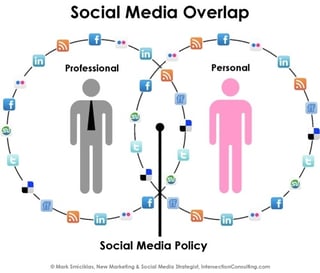Spotting employee knowledge gaps is a challenge for managers who are focused on the demands of daily operations.
Managers already divide their limited time between meetings, performance management tasks, reporting, planning, and putting out fires. But all employees, regardless of seniority level, need employee refresher training courses on topics that otherwise fall through the cracks.
-2.jpg?width=622&name=1200x627%20(1)-2.jpg)
Ignoring knowledge gaps in topics like policies and procedures can lead to costly mistakes, disruptive miscommunication or even physical injuries. Failing to keep employees current means mixed messages inside the office and in the field. Therefore, updating employees on training topics in the workplace is essential.
This disconnect creates confusion and will affect a company's bottom line. Employee refresher course training can reduce the impact on an organization’s time and resources.
Employee refresher training courses benefit companies directly by:
- Increasing efficiency
- Reducing mistakes
- Creating a culture of learning
- Equalizing employee knowledge base
- Promoting excellence
- Keeping people safe and compliant
- Identifying knowledge gaps and training needs
Planning training courses over the year is effective for learning because employees forget:
- 50 % of what we learn is forgotten in one hour
- 80 % of what we learn is forgotten after two days
- 90 % of what we learn is forgotten after 31 days
To increase participation and knowledge retention, space employee training courses over time and breakdown in bite-size format. Smaller, concrete topics are easier to absorb and promote participation during down times. This format allow employees to self-train at any desk, breakroom or even a location away from headquarters.
Here are seven bite-size topics ideal for any employee refresher course training:
- Workplace safety
Whether your business setting is high risk, located in an office space or your employees work remotely, safety training is a crucial investment. Employers can reduce liability by putting processes in place that include regular safety training. The European Agency for Safety and Health at Work, Health and Safety Executive or National Safety Council are good sites to find universal safety training topics. Make training content relevant with topics specific to your industry and region.
- Cybersecurity
Companies make important investments in information technology systems and manage sensitive data. This requires employees to be properly trained to keep systems secure.
Organizations can start with topics recommended by the European Parliament, Gov.UK, or the Department of Homeland Security. Enrich the content with industry and company-specific topics. At onboarding and once a year include password security and mobile device secure usage.

- Regulatory compliance
- Customer service skills
Handling every customer interaction with grace is essential to your business’s growth and client loyalty. Attentiveness, patience and knowledge are basics for any employee to know when interacting with a potential or current customer.
Every employee is an representative of a company's brand. Training that includes customer service skills makes each employee aware of every interaction while creating a positive culture.

- Social network use

- Products and services
- Ergonomics and well-being
Manual labor and repeated movments can lead to workplace injuries. Tips on taking breaks and proper handling of packages are important topics to cover for employee well-being.
Environmental factors like lighting and adequate temperatures are also important to keep in mind for a comfortable working environment. For more topics on occupational safety and health, refer to OSHA.






-1.jpg)
.jpg)

